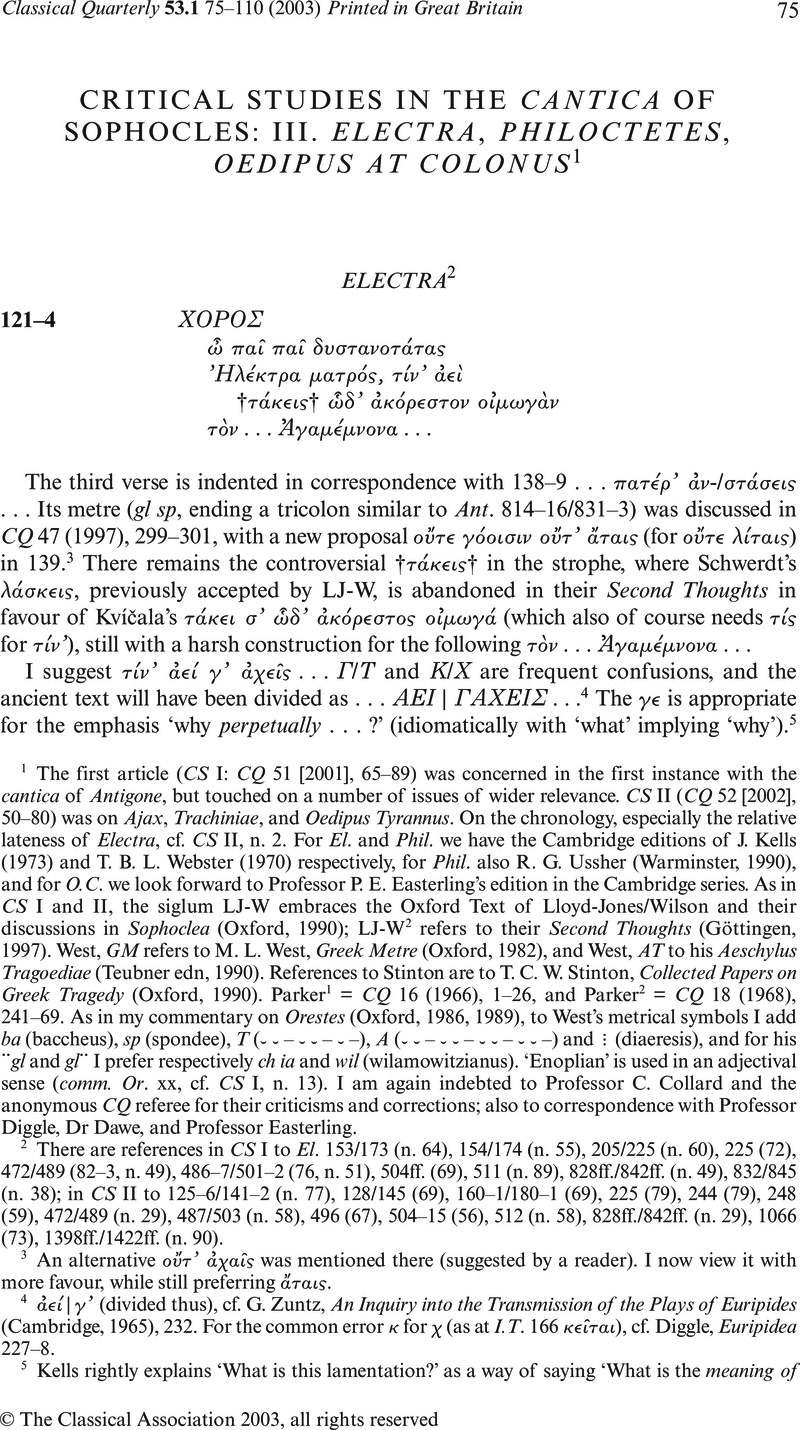No CrossRef data available.
Article contents
Critical Studies in the Cantica of Sophocles: III. Electra, Philoctetes, Oedipus at Colonus1
Published online by Cambridge University Press: 07 April 2006
Abstract

- Type
- Research Article
- Information
- Copyright
- Copyright © The Classical Association 2003
References
1 The first article (CS I: CQ 51 [2001], 65–89 was concerned in the first instance with the cantica of Antigone but touched on a number of issues of wider relevance. CS II (CQ 52 [2002], 50–80) was on Ajax, Trachiniae, and Oedius Tyrannus. On the chronology, especially the relative lateness of Electra, cf. CS II, n. 2. for El. and Phil. we have the cambridge editios of J. Kells (1973) and T. B. L. Webster (1970) respectively, for Phil. also R. G. Ussher (Warminster, 1990), and for O. C. we look forward to Professor P. E. Easterling’s edition in the Cambridge series. As in CS I and II, the siglum LJ-w embraces the Oxford Text of Lloyd-Jones/Wilson and their discussions in Sophoclea (Oxford, 1990); LJ-W2 refer to their Second Thoughts (Göttingen, 1997). West, GM refers to M. L. West, Greek metre (Oxfotrd, 1982), and West, AT to his Aeschylus Tragoediae (Teubner edu, 1990). References to Stinton are to T. C. W. Stinton, Collected Papers on Greek Tragedy (Oxford, 1990). Parker1 = CQ 16 (1966), 1–26, and Parker2 = CQ 18 (1968), 241–69. As in my commentary on Orestes (Oxford, 1986, 1989), to West’s metrical symbols I add ba(baccheus), sp (spondee), T(- - -), A(- - - -) and : (diaeresis), and for his ¨gl and gl¨ I prefer respectively ch ia and wil (wilamowitzianus). ‘Enoplian’ is used in an adjectival sense (comm. Or. xx, cf. CS I, n. 13). I am again indebted to Professor C. Collard and the anonymous CQ referee for their criticims and corrections; also to correspondence with Professor Diggle, Dr Dawe and Professor Easterling.




